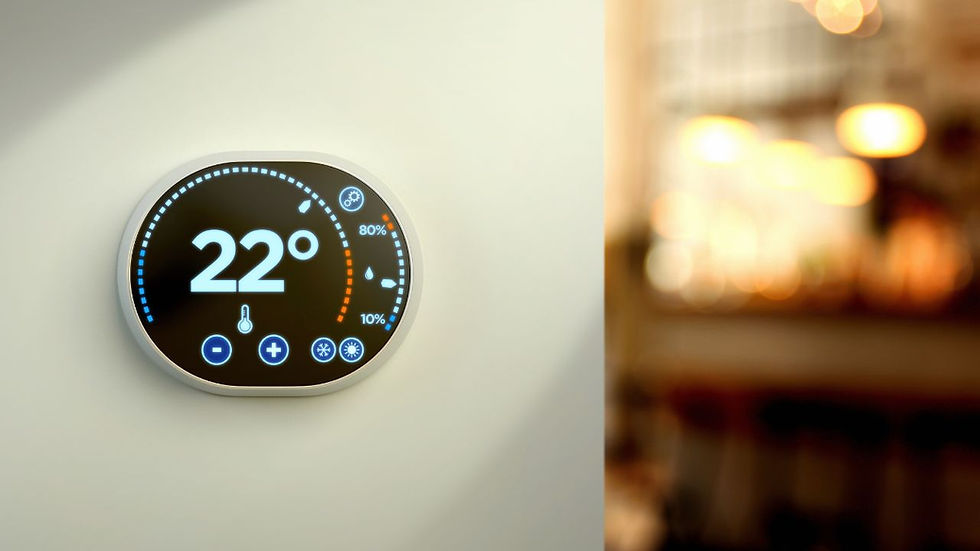What should you do if Wegovy is exposed to extreme temperatures?
- AJ Hill Aesthetics

- Oct 1, 2025
- 3 min read
Wegovy pens must be stored in the fridge before first use and below 30 °C after opening. If a pen is accidentally frozen, left in direct sunlight, or overheated, it should not be used. Extreme temperatures can damage semaglutide and reduce its effectiveness. In such cases, the advice is to speak to a pharmacist or clinic about a replacement pen.
Why temperature control is essential

Wegovy (semaglutide) is a biological medicine, made from proteins that are highly sensitive to heat and cold. Unlike tablets, which are often more stable, injectable proteins can lose their structure if exposed to temperatures outside the recommended range. NICE TA875 and MHRA product guidance both underline that storage instructions are based on stability testing. Once a pen has been frozen or overheated, it cannot be guaranteed to work properly, even if the liquid looks unchanged. This is why replacement is always recommended rather than trying to use a damaged pen.
Risks of freezing

Freezing is one of the most damaging conditions for semaglutide. Ice crystals disrupt the delicate protein structure, permanently altering the medicine. NHS guidance makes clear that pens should never be kept near the freezer compartment and must not be used if accidentally frozen. Patients are advised to dispose of frozen pens safely in a sharps bin and request a replacement. This rule is non-negotiable because freezing damage cannot be reversed and may make the drug ineffective.
Risks of overheating

Heat is equally problematic. Pens left in hot cars, near radiators, or in direct sunlight can quickly reach temperatures above 30 °C. At these levels, protein breakdown accelerates, reducing the medicine’s potency. NICE notes that room temperature storage is safe only up to 30 °C, and only for a maximum of six weeks after first use. In summer or warmer climates, patients are advised to use cool bags or insulated pouches to keep pens within the safe range. NHS services stress that prevention is best — never assume a pen is safe if it has been exposed to extreme heat.
After first use
Unopened pens should stay refrigerated at 2–8 °C until needed. After first use, pens can be stored outside the fridge, but only below 30 °C and for up to six weeks. NHS patient leaflets advise writing the date of first use on the carton to keep track. If a pen has been left out longer than six weeks or exposed to heat, it must be discarded. This limit comes from manufacturer stability data reviewed by regulators. It ensures that all doses remain consistent with those tested in the STEP and SELECT trials.
Practical steps if exposure occurs

If you think a pen has been overheated or frozen, the safest course is to stop using it. Place it in a sharps bin and contact your pharmacist or weight management clinic for advice. They can confirm whether a replacement is needed and arrange for safe disposal. Some patients may be asked to bring the affected pen with them so staff can record the issue. NHS 111 can also advise if you are uncertain, particularly if you are due to inject soon and cannot contact your regular clinic.
Lessons from clinical trials
In the STEP programme, pens were stored under controlled conditions, ensuring every dose was delivered at full strength. The consistent outcomes — including average weight loss of around 15% at the licensed 2.4 mg dose — relied on properly stored medicine. NICE TA875 approval reflects this evidence, meaning that UK practice must mirror trial standards. If storage rules are ignored, results may be less predictable, and patients may not experience the benefits proven in research.
Planning ahead
Many patients find it helpful to plan storage for different scenarios. At home, pens should be kept in their original cartons in the fridge, away from the freezer compartment and out of children’s reach. When travelling, in-use pens can be carried in insulated pouches, while unopened pens should be kept cool with medical travel packs if refrigeration is not available. NHS services often provide practical tips for holidays or heatwaves, helping patients stay confident that their pens remain safe.
Key takeaways
Extreme temperatures — whether freezing or overheating — can irreversibly damage Wegovy pens, even if they look unchanged. NICE, NHS, and MHRA guidance all confirm that pens must be stored in the fridge before first use and below 30 °C once opened, with a strict six-week limit. If a pen has been exposed to conditions outside these ranges, it should not be used: the key takeaway is simple — discard the damaged pen safely and contact your pharmacist or clinic for a replacement. Protecting storage conditions protects the effectiveness of treatment.



